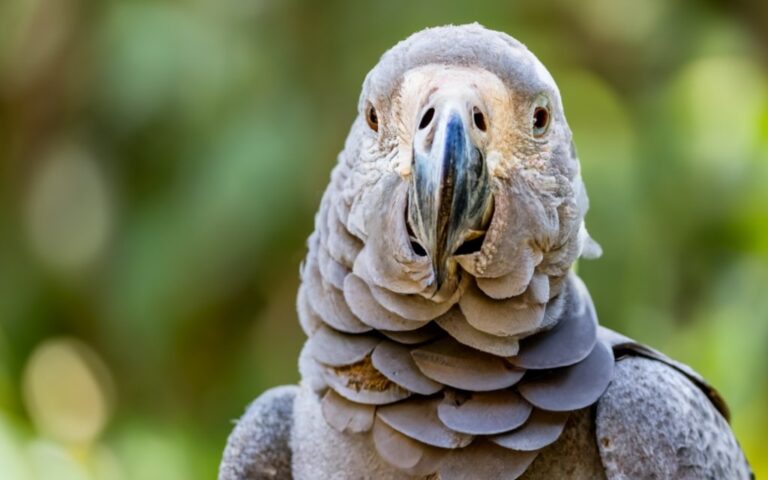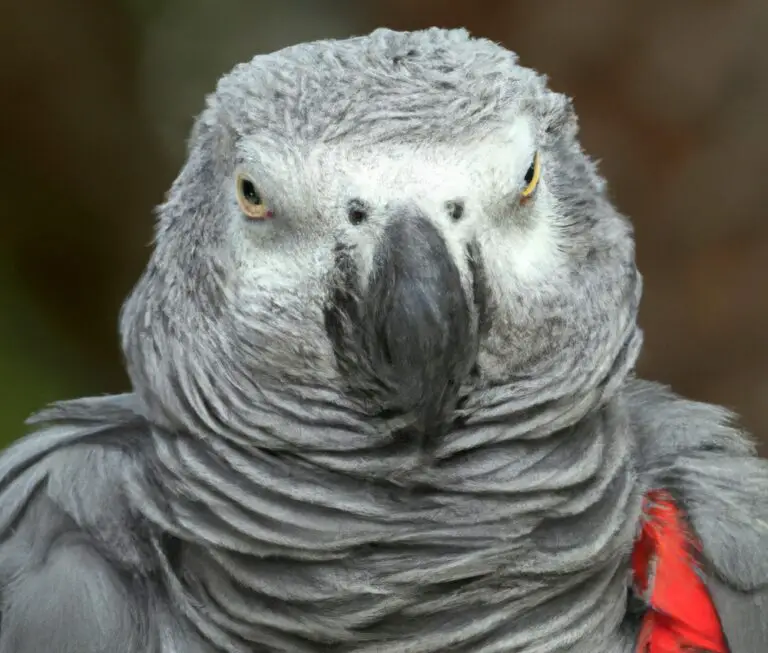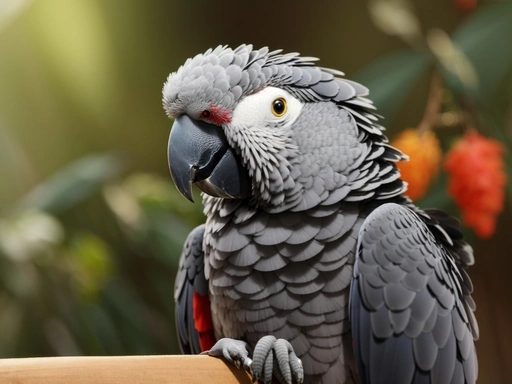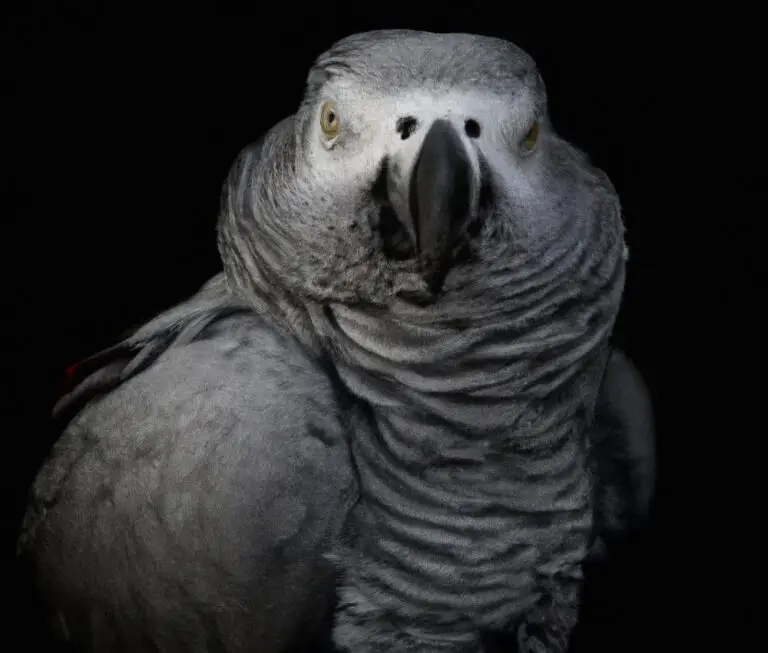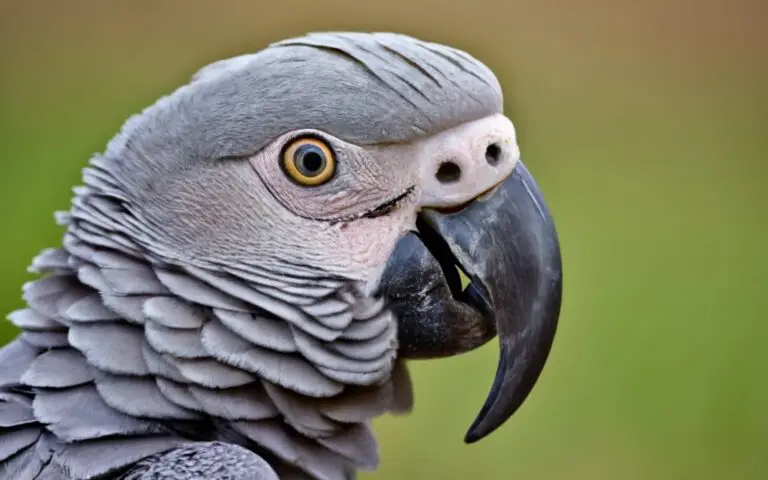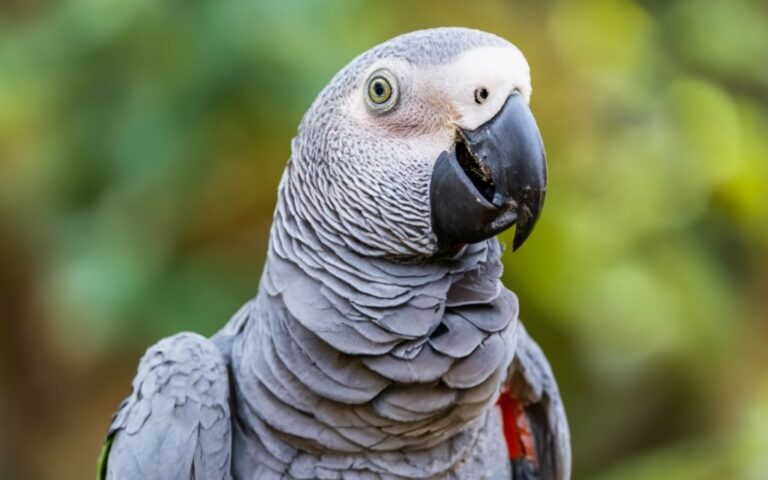Can African Grey Parrots Eat Mango?
Key Takeaways:
- African grey parrots can safely consume mango as part of their diet.
- Mango is a nutritious fruit that offers various health benefits for African grey parrots.
- Moderation is key when feeding mango to African grey parrots due to its high sugar content.
- Ensure that mango is properly prepared and free from any harmful additives before feeding it to your African grey parrot.
Imagine a world where you could combine your love for African Grey Parrots with your passion for sweet and juicy mangoes.
Well, guess what?
It turns out that these vibrant birds may just have a taste for the tropical fruit too.
As an avid parrot lover, I’ve delved into the intriguing topic of whether African Grey Parrots can enjoy a mango-filled treat.
In this article, we’ll explore their dietary needs, delve into the nutritional composition of mangoes, and answer the burning question: Can African Grey Parrots safely indulge in this delectable fruit?
So, let’s fly right in and discover the truth behind the mango-munching mystery!
| Parameter | African Grey Parrots |
| Can Eat Mango? | Yes |
| Taste | Enjoy the sweet and tangy flavor of mango |
| Vitamins | Rich in Vitamin A and C |
| Minerals | Contains Minerals like Potassium and Magnesium |
| Fiber | Mangoes are a good source of Dietary Fiber |
| Quantity | Moderation is key; offer as a occasional treat |
| Pit and Skin | Avoid feeding the pit and skin to parrots |
| Cautions | Some parrots may be allergic to mango; watch for any adverse reactions |
African Grey Parrots and their diet
African Grey Parrots have specific dietary needs that must be met for their overall health and well-being.
Understanding the dietary needs of African Grey Parrots
African Grey Parrots have specific dietary needs that must be met for their overall health and well-being.
These birds require a balanced diet consisting of fresh fruits, vegetables, high-quality pellets, and a limited amount of seeds and nuts.
It is important to provide a variety of foods to ensure they receive all the necessary nutrients.
Offering a mix of different foods will help mimic their natural feeding habits in the wild.
Additionally, it’s crucial to provide fresh water and avoid feeding them any toxic foods.
Meeting their dietary needs is vital for their long-term health.

Why a balanced diet is important for African Grey Parrots
A balanced diet is crucial for African Grey Parrots to ensure their overall health and well-being. It provides them with the necessary nutrients, vitamins, and minerals that they need to thrive.
It helps support their immune system, maintain a healthy weight, promote proper digestion, and enhance their natural colors and feather quality.
A balanced diet also helps prevent deficiencies or imbalances that can lead to various health issues, such as weakened immune system, obesity, feather plucking, and poor reproduction. By providing a well-rounded diet, you can help your African Grey Parrot live a long, healthy, and happy life.
Mango as a potential food for African Grey Parrots
Mangoes can be a potential food for African Grey Parrots due to their nutritional value.
Nutritional composition of mangoes
Mangoes are quite a nutritious fruit! They are packed with vitamins like vitamin C, vitamin A, and vitamin E, which are important for the overall health of African Grey Parrots.
Mangoes also contain fiber, potassium, and antioxidants.
However, they should be fed in moderation due to their relatively high sugar content.
Can African Grey Parrots eat mangoes?
Yes, African Grey Parrots can eat mangoes.
Mangoes are safe and healthy for them, as long as they are given in moderation.
Mangoes provide essential vitamins and minerals, such as vitamin C and potassium, which are beneficial for the parrot’s overall health.
Just make sure to remove the pit and peel the skin before feeding it to your parrot.
Benefits of feeding mangoes to African Grey Parrots
Mangoes can provide several benefits to African Grey Parrots due to their rich nutritional composition. They are a great source of vitamins A and C, which support the parrot’s immune system and promote healthy feathers.
Additionally, mangoes contain dietary fiber, which aids digestion, and antioxidants that are beneficial for overall health.
Just remember to feed mangoes in moderation as part of a balanced diet.
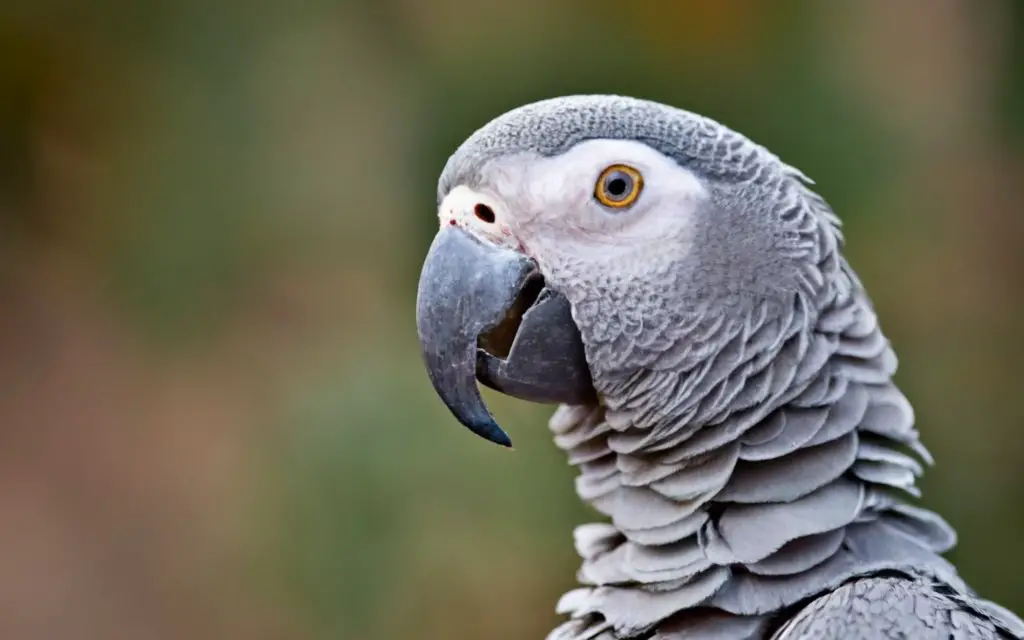
Guidelines for feeding mangoes to African Grey Parrots
Feeding mangoes to African Grey Parrots – here’s what you need to know.
Potential risks and precautions when feeding mangoes to African Grey Parrots
Feeding mangoes to African Grey Parrots can have potential risks, so it’s important to take precautions.
Here are a few things to keep in mind:
- Allergies: Like humans, some parrots may have allergies to certain fruits, including mangoes. Monitor your parrot closely after introducing mangoes to their diet and look for signs of allergies such as itching, swelling, or digestive issues.
- High sugar content: Mangoes are naturally sweet and contain a high amount of natural sugars. Feeding too much mango to your parrot can lead to weight gain and potential health issues, such as diabetes or fatty liver disease. Moderation is key.
- Pesticide residues: Mangoes are often treated with pesticides to protect them from insects. Before feeding mangoes to your parrot, make sure to wash them thoroughly to remove any pesticide residues that can be harmful to your parrot’s health.
- Choking hazard: Mangoes have a pit or seed in the center, which can pose a choking hazard to your parrot. Always remove the pit and cut the mango into small, bite-sized pieces before offering it to your parrot.
- Introduce gradually: When introducing mangoes or any new food to your parrot’s diet, do it gradually. Start with small amounts and observe how your parrot reacts. If there are any adverse reactions or digestive issues, discontinue feeding mangoes immediately.
Remember, while mangoes can be a nutritious addition to your African Grey Parrot’s diet, it’s essential to practice caution and moderation to ensure their well-being.
Other fruits suitable for African Grey Parrots’ diet
African Grey Parrots can enjoy a variety of fruits in their diet.
Exploring a variety of fruits for a balanced diet
A variety of fruits is important for a balanced diet for African Grey Parrots. They provide essential nutrients and enrichment.
Try offering fruits like apples, bananas, berries, and oranges.
Introduce new fruits gradually and observe any adverse reactions. Avoid toxic fruits like avocados and grapes.
Safety considerations when introducing new fruits to African Grey Parrots
When introducing new fruits to African Grey Parrots, it’s important to consider their safety. Make sure the fruit is free from pesticides, as these can be harmful to your parrot’s health.
Additionally, remove any seeds or pits, as they can be toxic.
Start with small quantities and monitor your parrot for any adverse reactions.
Recommended fruits for African Grey Parrots and their nutritional benefits
African Grey Parrots should be offered a variety of fruits for a well-rounded diet. Some recommended fruits include apples, bananas, berries, grapes, oranges, and pears.
These fruits provide essential vitamins, minerals, and antioxidants that support the parrot’s overall health and immune system.
Make sure to wash the fruits thoroughly and remove any seeds or pits before offering them to your parrot.
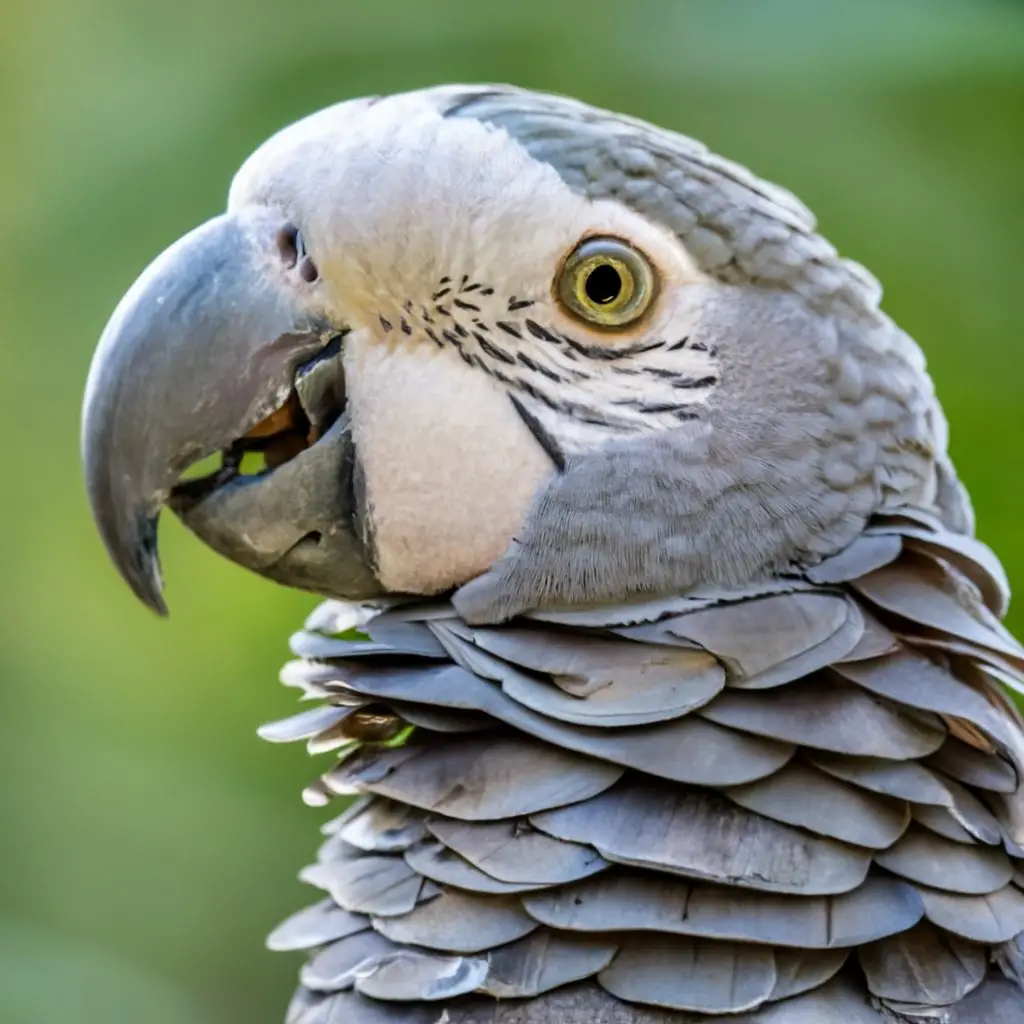
Frequently Asked Questions
Can African Grey Parrots eat the skin of a mango?
Yes, African Grey Parrots can eat the skin of a mango. The skin is safe for them to consume and can actually provide additional nutrients and fiber.
Just make sure to wash the mango thoroughly before offering it to your parrot.
Can African Grey Parrots eat other parts of mango, like seeds or leaves?
African Grey Parrots should not be fed mango seeds or leaves, as they can be toxic to them.
The seeds contain cyanide and can be harmful if ingested.
It is important to only feed them the flesh of the mango in moderation, as too much could lead to digestive issues.

How often should mango be included in an African Grey Parrot’s diet?
Mango can be included in an African Grey Parrot’s diet as an occasional treat. It should be given in moderation due to its high sugar content.
Aim to offer mango once or twice a week, in small quantities, as part of a varied and balanced diet that includes other fruits and vegetables.
Remember to always remove the skin and pit and ensure the mango is ripe and fresh before offering it to your parrot.
Are there any fruits that should be avoided for African Grey Parrots?
Yes, there are a few fruits that should be avoided when feeding African Grey Parrots. These include avocados, which are toxic to birds and can cause serious health issues.
Additionally, citrus fruits like oranges and lemons should be avoided as they can be too acidic for their sensitive digestive systems.
Final Verdict
Mangoes can be a safe and nutritious addition to an African Grey Parrot’s diet, given that they are prepared and offered in moderation. Mangoes are rich in vitamins, minerals, and antioxidants, supporting the overall health and wellbeing of these beautiful birds.
However, it is important to remember that mangoes should not replace the staple diet of African Grey Parrots, but rather be included as part of a balanced meal plan.
Additionally, precautions should be taken, such as removing the pit and ensuring the fruit is ripe and free of pesticides. By following these guidelines, you can provide your African Grey Parrot with a varied and enriching diet that promotes their optimal health.

